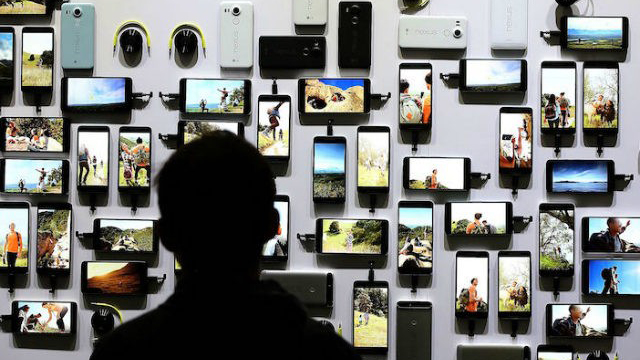The manufacturers in China have apparently been including some additional 'back doors' that compromised the security of those using the devices by allowing people such as the Chinese to spy using the device with 'added feature.'
***Article first published by 'Breitbart' on April 23, 2018***
Stars & Stripes reports that smartphones made by the Chinese company Huawei are being sold to U.S. military personnel at exchanges on military bases in Germany. Defense officials explained that until Huawei products are explicitly banned by statute or regulation, they will remain available. A bill that would bar U.S. government contractors from using Huawei equipment is currently making its way through Congress.
In a February briefing for the Senate Intelligence Committee, the heads of six U.S. intelligence and security agencies, including the CIA, FBI, and NSA, advised all American citizens to avoid using Huawei electronics. They expressed similar reservations about Chinese telecom company ZTE.
“We’re deeply concerned about the risks of allowing any company or entity that is beholden to foreign governments that don’t share our values to gain positions of power inside our telecommunications networks,” said FBI Director Chris Wray.
“That provides the capacity to exert pressure or control over our telecommunications infrastructure. It provides the capacity to maliciously modify or steal information. And it provides the capacity to conduct undetected espionage,” Wray said.
Huawei figures prominently in a new report on cyber espionage risks commissioned by the U.S.-China Economic and Security Review Commission.
Huawei executives rejected the concerns expressed at the Senate hearing, accusing American government agencies of conspiring to provide U.S. companies with an unfair advantage by keeping Chinese companies out of the market.
“Where is U.S. President Donald Trump’s belief in fair trade when he keeps shutting out Chinese companies and products from the U.S. market?” said China’s state-run Xinhua news service in February. “Setting up trade barriers at the excuse of national security might be the worst option to build a prosperous and free market.”
Huawei maintained its products are employed by governments around the world, a point echoed by critics of the U.S. intelligence advisory who noted that security-conscious Europeans appear to be as comfortable with using equipment from the Chinese company as they are with suppliers from the U.S., Japan, and South Korea. Huawei has grown into the second-largest smartphone manufacturer in the world, surpassed only by Samsung.
Also, in a point that would later be echoed by the U.S.-China Economic and Security Review report, critics pointed out that Chinese chips can now be found in so many cell phones that it’s difficult to tell which are potentially compromised and which are relatively “clean.”
Both sides of the debate over Huawei phones seemed to be weighing on agency representatives who spoke to Stars & Stripes about the availability of the phones to American servicemembers in Germany:
The Huawei phones, which are being sold by TKS, an Army and Air Force Exchange Service concessionary and subsidiary of Vodaphone, could be used to gather sensitive information, according to U.S. intelligence agencies. They are banned for official government use in most cases.
The Defense Department asked whether Huawei mobile phones were being sold at exchange facilities but has not offered any other direction, said AAFES senior spokesman Chris Ward.
“We responded ‘yes’ and have had no other inquiries,” Ward said in an email response. “Should there be an official determination made by law enforcement officials that these phones present a security risk, the Exchange will instruct its vendors to remove impacted products from their assortment.”
Officials at Ramstein Air Base, where Europe’s largest exchange and a TKS concessionary operate, said they are aware that the phones are being sold on base.
Defense officials stressed the importance of following operational security protocols with all smartphones, regardless of manufacturer.
Rep. Mike Conaway (R-TX) of the House Permanent Select Committee on Intelligence introduced a bill in January that would bar government contractors from using Huawei and ZTE equipment, citing security concerns. Presumably, the passage of Conaway’s bill could impose the sort of firm ban that would prevent the sale of the phones on U.S. bases abroad.
“Chinese commercial technology is a vehicle for the Chinese government to spy on United States federal agencies, posing a severe national security threat,” Conaway declared, adding:
Allowing Huawei, ZTE, and other related entities access to U.S. government communications would be inviting Chinese surveillance into all aspects of our lives. This legislation falls directly in line with President Trump’s policy of putting American national security interests first, a policy I’m proud to support.
Sens. Tom Cotton (R-AR) and Marco Rubio (R-FL) filed companion legislation in the Senate in February.
“Huawei is effectively an arm of the Chinese government, and it’s more than capable of stealing information from U.S. officials by hacking its devices. There are plenty of other companies that can meet our technology needs, and we shouldn’t make it any easier for China to spy on us,” said Sen. Cotton.
